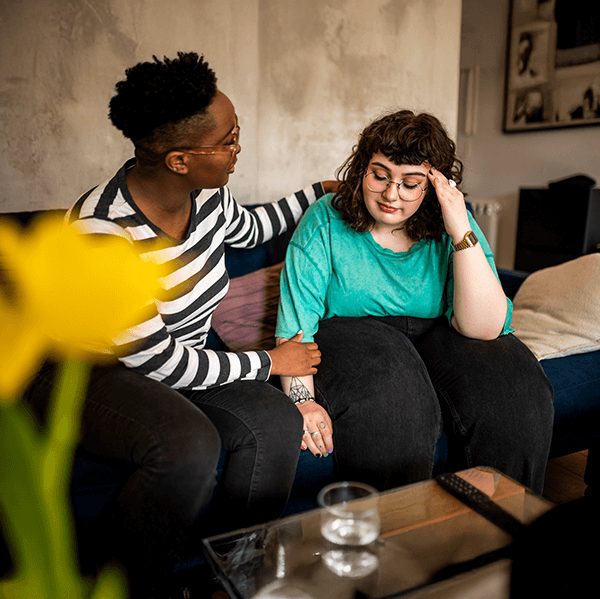|
Mood
|
- Sad
- Crying a lot
- Feeling hopeless or guilty
|
- Angry
- Stressed
- Easily frustrated
|
|
Connection to Baby
|
- Hard time bonding or feeling close to the baby
|
- Feeling distant from baby or partner
- Avoiding baby care
|
|
Energy & Sleep
|
- Feeling very tired
- Trouble sleeping even when baby sleeps
|
- Tired from lack of sleep
- May spend more time at work or away
|
|
Eating & Physical Body Feelings
|
- Eating too little or too much
- May have body aches and pains
|
- Changes in eating
- Stomach problems
- Headaches
|
|
Ability to Focus
|
- Trouble thinking clearly or making decisions
|
- Hard to focus
- Less interest in work or home life
|
|
Social Life
|
- Pulls away from family and friends
- Loses interest in hobbies
|
- Pulls away socially
- May drink or use substances more
- Withdrawing from family
|
|
Anxiety
|
- Feeling very anxious or like a “bad mom”
|
- Worries about money or providing for family
- More irritable
|
|
Serious Thoughts of Harm
|
- May think about harming self or baby
|
- May feel trapped and think about running away
- May think about self-harm
|
 If you have serious thoughts of harming yourself, your baby, or others, get help right away.
If you have serious thoughts of harming yourself, your baby, or others, get help right away.
|








